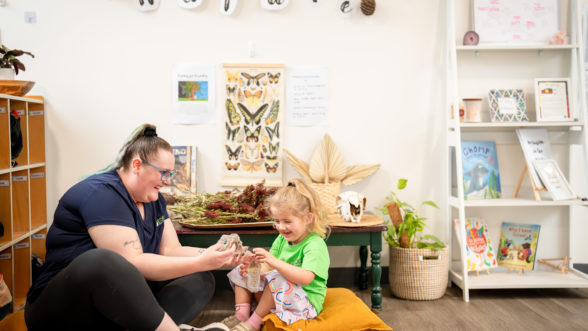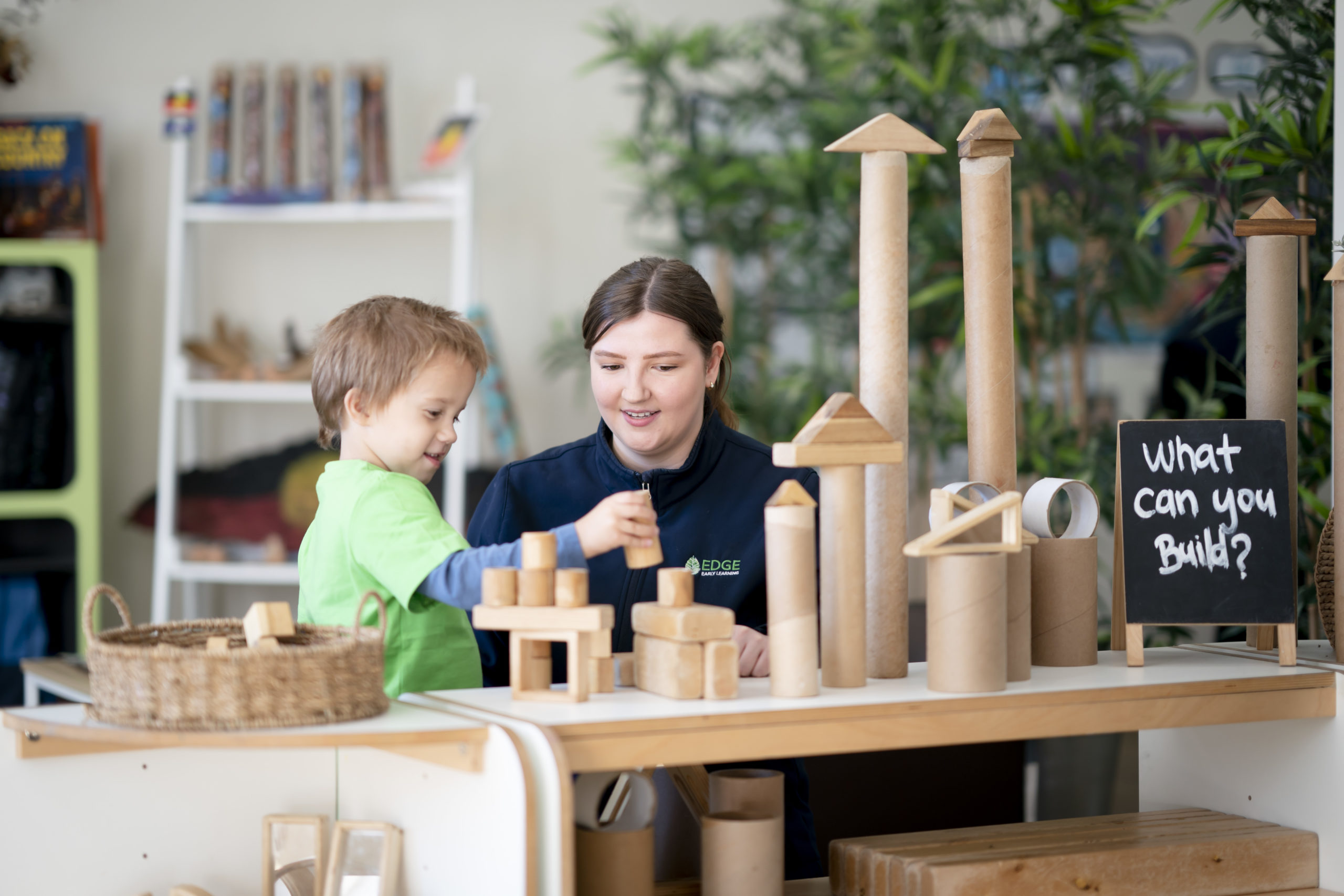What is Free Play in Early Childhood?
Let’s be honest, some of the best learning happens when things get a bit messy and unstructured. Imagine your child at childcare, building a fort out of cushions with friends or turning a cardboard box into a rocket ship. That’s the magic of free play in action. But what is free play, and why is it so important for your child’s development? Here you’ll discover how to support and celebrate free play, wherever your child may be.
What is Free Play?
So, what is free play? In simple terms, free play is child-led, unstructured play where children choose their own activities, set their own rules, and decide when to start and stop. There are no predetermined outcomes, no adult instructions, and no right or wrong way to play. You might also hear it called “child-directed play” or “unstructured play.” Unlike structured activities or guided play, free play gives children the freedom to explore, imagine, and create on their own terms.
Some parents wonder if free play is just “mucking around,” but research shows the benefits of free play for children are enormous. By giving children time and space for free play, we foster creativity, independence, and a genuine love of learning – that’s why it’s part of our daily routine.
What are the Benefits of Free Play for Children?
The benefits of free play for children are huge. Free play is essential for building imagination, critical thinking, and independence. Here’s how:
- Social and Emotional Growth: Free play helps children learn to collaborate, negotiate, share, and develop empathy. It’s where they practice self-regulation and learn to manage their feelings.
- Cognitive Development: When children engage in free play, they’re problem-solving, thinking creatively, and developing critical thinking skills.
- Physical Development: Running, jumping, climbing, and even rough-and-tumble play all help develop motor skills, balance, coordination, and overall physical health.
- Language and Communication Skills: Free play encourages children to use new words, tell stories, and interact socially, building their vocabulary and communication skills.
- Independence and Autonomy: By making their own choices during free play, children build confidence, initiative, and decision-making skills.
Examples of Free Play
There are so many ways children can enjoy free play, and every child will have their own favourites. The environment plays a big role – think block corners, dress-up areas, and outdoor spaces that invite exploration.
- Imaginative Play: Dress-ups, pretend kitchens, and storytelling adventures.
- Exploratory Play: Sensory bins, water play, and discovering the outdoors.
- Active Play: Running, jumping, climbing, and all sorts of energetic movement.
- Creative Play: Drawing, painting, and building with open-ended materials.
- Older Children’s Free Play: Inventing games, changing rules, and social role-playing.
How Adults Should Supervise to Support Free Play
- Free play is a chance for children to practice independence, but adults still play an important role in supporting it. Here’s how you can help:
- Create a safe space with open-ended materials like blocks, dolls, and art supplies.
- Observe and encourage: let your child lead, but be available to support if needed.
- Ask open-ended questions to encourage deeper thinking, without directing the play.
- Balance safety and freedom: know when to step in and when to let your child problem-solve.
- Promote playfulness by modeling curiosity and creativity, without taking over.
How To Encourage Free Play at Home
- Free play isn’t just for early learning centres, it’s just as important at home. Here are some tips:
- Create a play-friendly space with inviting toys, costumes, and open-ended materials.
- Limit screen time to encourage hands-on, imaginative activities.
- Encourage outdoor play for fresh air, movement, and nature-based exploration.
- Play alongside your child – join in, but let them take the lead.
- Provide time and freedom for unstructured play, without interruptions.
Letting Kids Be Kids
At the end of the day, free play is about letting kids be kids. It’s an essential part of learning and growing, both at home and at Edge Early Learning. We nurture curiosity, creativity, and confidence through play, because every child deserves the freedom to explore, imagine, and discover in their own unique way.
At Edge Early Learning, we believe in the benefits of play-based learning, which is why it’s woven into everything we do. Want to see our approach in action? Book a centre tour today!

